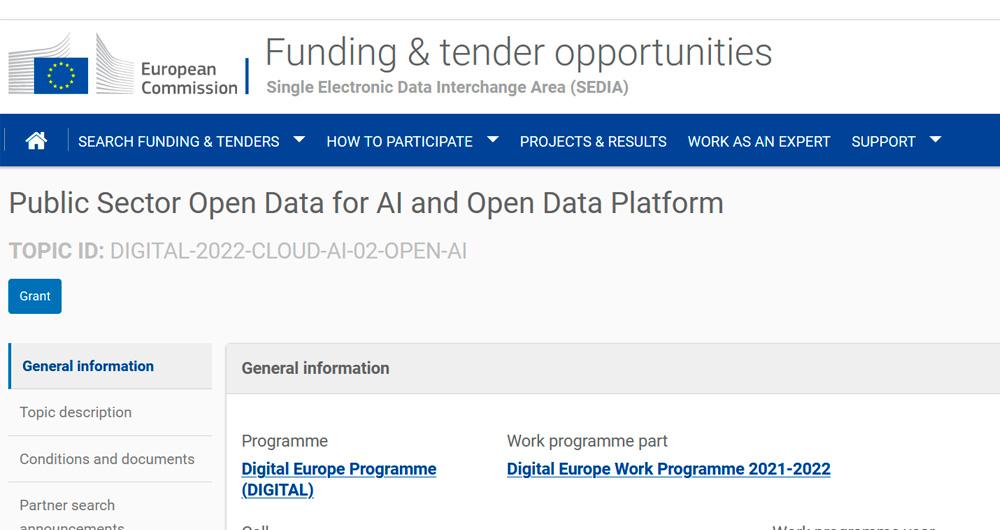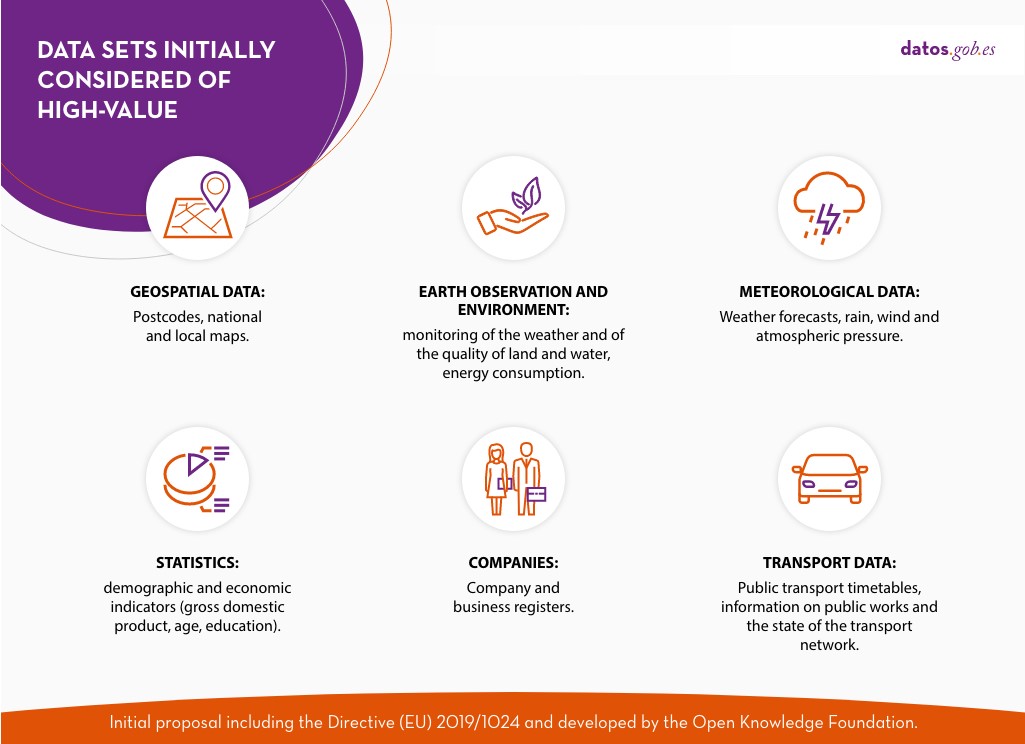
The European Union wants to bring digital technology closer to businesses, citizens and public administrations. To this end, it launched the Digital Europe Programme, which aims to close the gap between research in digital technology and its implementation in all sectors of the economy and society. With a 6-year extension (2021-2027), the programme covers areas such as supercomputing, artificial intelligence, cybersecurity and advanced digital skills.
Given that open data has a key potential in the development of many of these disruptive technologies, it is not surprising that within the programme we also find specific grants aimed at their development. This is the case of the "Public Sector Open Data for AI and Open Data Platform" grants, included in the programme's Cloud Data and TEF call (DIGITAL-2022-CLOUD-AI-02).
The objective of these grants is to boost the availability, quality and usability of high-value public sector data, in compliance with the requirements of the Open Data Directive and the re-use of public sector information. This, in turn, is intended to boost the re-use and combination of open public data across the EU for the development of information products and services, with a special focus on Artificial Intelligence.

The importance of high-value data
According to Directive (EU) 2019/1024, high-value data is a set of datasets with a high potential to generate "benefits for society, the environment and the economy, in particular because of their suitability for the creation of value-added services, applications and new, decent and quality jobs".
Initially, the Directive listed 6 categories of data to be considered of high value: geospatial, earth observation and environmental, meteorological, statistical, company and mobility data. However, these categories will be modified in the future to respond to technological and market changes. In Spain, the role of adding new categories of high-value data falls to the Data Office with the collaboration of public and private stakeholders, as specified in Royal Decree-Law 24/2021, of 2 November, transposing several European Union directives, including Directive 2019/1024.

What is being sought?
The grants aim to support public administrations at local, regional and national level to increase semantic, technical and legal interoperability and portability of high-value data.
The datasets generated as a result of the work must meet the following conditions:
- They must be freely available through one or more open data portals of the Member States.
- They must belong to one of the 6 thematic categories indicated in Directive (EU) 2019/1024.
- Both new datasets and datasets resulting from the merging of existing, harmonised, quality-enhanced, etc. datasets are valid.
- They must be available through application programming interfaces (APIs), in a machine-readable format.
- Their publication and re-use conditions must be compatible with an open standard licence.
- They must have quality standards (attribute lists, formats, structures, semantics, documentation and terms of use) that ensure cross-border interoperability.
The proposal should propose concrete Key Performance Indicators (KPIs) to assess the benefits of the implemented solutions for citizens and/or businesses.
What does the aid cover?
The aid covers 50% of the actual costs in a number of "eligible" categories, including staff costs, communication costs, purchasing costs, etc.
To whom is the proposal addressed?
The grants are targeted at public administrations to which the obligations of Directive 2019/1024 apply. Public and private data re-users may be involved in the choice of the datasets to be prioritised.
Only legal entities, not natural persons, from EU Member States associated to the European Economic Area or the Digital Europe Programme can participate.
How to participate?
Proposals must be submitted electronically through the European Commission's Funding and Tendering Portal, using a number of forms provided in the system:
- Application Form Part A. Contains administrative information and the summary budget for the project.
- Application form Part B. Contains the technical description of the project (Max. 70 pages).
- Mandatory annexes and supporting documents
The deadline for applications is 17 May 2022.